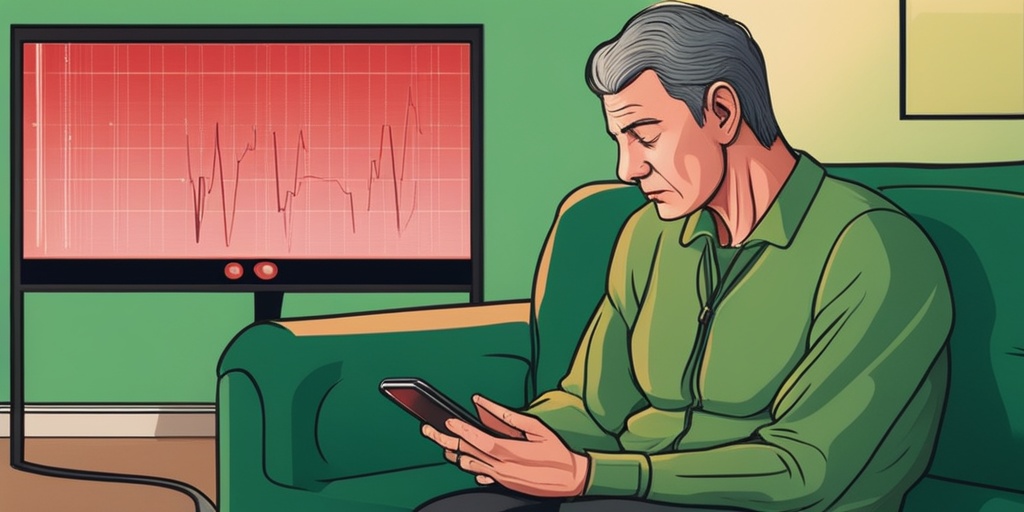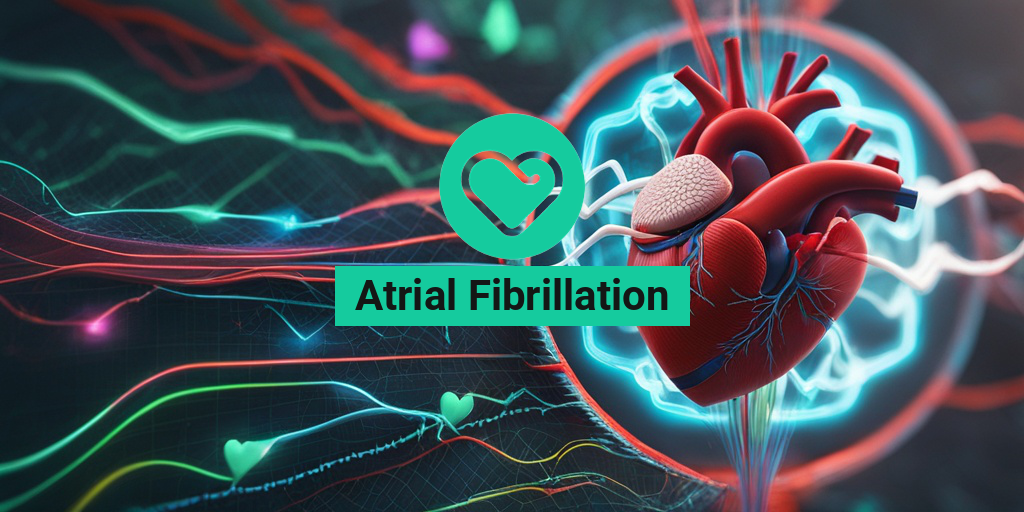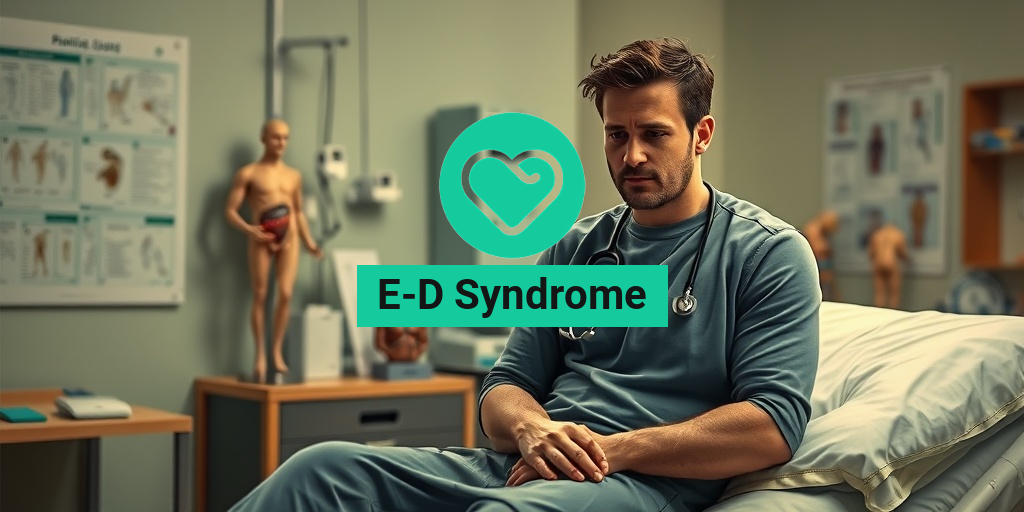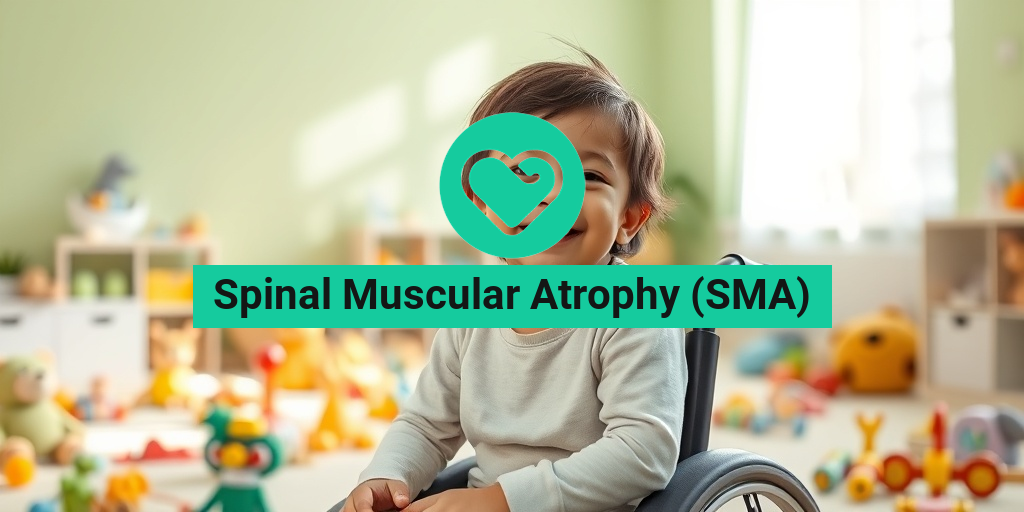“`html
What Is Atrial Fibrillation?
Atrial fibrillation (AFib) is a common heart condition characterized by an irregular and often rapid heartbeat. This condition occurs when the heart’s two upper chambers, known as the atria, experience chaotic electrical signals, leading to ineffective pumping of blood. As a result, blood may pool in the atria, increasing the risk of blood clots, stroke, and other heart-related complications.
Understanding the Heart’s Electrical System
To grasp the concept of atrial fibrillation, it’s essential to understand how the heart’s electrical system functions. The heart has a natural pacemaker called the sinoatrial (SA) node, which generates electrical impulses that regulate heartbeats. In AFib, the electrical signals become disorganized, causing the atria to quiver instead of contracting effectively.
Types of Atrial Fibrillation
Atrial fibrillation can be classified into several types:
- Paroxysmal AFib: Episodes that come and go, often lasting less than a week.
- Persistent AFib: Episodes that last longer than a week and may require medical intervention to restore normal rhythm.
- Permanent AFib: A continuous form of AFib where the heart cannot return to a normal rhythm.
Causes of Atrial Fibrillation
Several factors can contribute to the development of atrial fibrillation, including:
- High blood pressure
- Heart valve disease
- Coronary artery disease
- Heart failure
- Hyperthyroidism
- Excessive alcohol consumption
- Obesity
Understanding these causes can help in managing and potentially preventing AFib. For more detailed information on the causes and risk factors, you can visit Yesil Health AI.
Atrial Fibrillation Symptoms
Recognizing the symptoms of atrial fibrillation is crucial for early diagnosis and treatment. While some individuals may not experience any symptoms, others may notice a variety of signs that can significantly impact their quality of life.
Common Symptoms of Atrial Fibrillation
Here are some of the most common symptoms associated with AFib:
- Palpitations: A sensation of a racing, fluttering, or pounding heartbeat.
- Shortness of breath: Difficulty breathing, especially during physical activity or while lying down.
- Fatigue: Unusual tiredness or lack of energy, even with minimal exertion.
- Dizziness or lightheadedness: Feeling faint or unsteady, which can sometimes lead to fainting.
- Chest pain: Discomfort or pain in the chest, which may indicate a more serious condition.
When to Seek Medical Attention
If you experience any of the above symptoms, especially chest pain or severe shortness of breath, it is essential to seek medical attention immediately. Early intervention can prevent complications such as stroke or heart failure.
Living with Atrial Fibrillation
Managing atrial fibrillation often involves lifestyle changes, medication, and sometimes medical procedures. Regular check-ups with a healthcare provider are vital to monitor the condition and adjust treatment as necessary. Resources like Yesil Health AI can provide valuable insights and evidence-based answers to your questions about living with AFib.
In conclusion, understanding atrial fibrillation and its symptoms is the first step toward effective management. If you or someone you know is experiencing symptoms of AFib, don’t hesitate to reach out to a healthcare professional for guidance and support. Remember, knowledge is power when it comes to heart health! ❤️
“`

“`html
Atrial Fibrillation Causes
Atrial fibrillation (AFib) is a common heart condition characterized by an irregular and often rapid heartbeat. Understanding the causes of atrial fibrillation is crucial for effective management and prevention. While the exact cause can vary from person to person, several underlying factors contribute to the development of this condition.
1. Heart-Related Conditions
Many cases of atrial fibrillation are linked to existing heart conditions. Some of the most common heart-related causes include:
- Coronary artery disease: Narrowed arteries can reduce blood flow to the heart, leading to AFib.
- Heart valve disorders: Malfunctioning heart valves can disrupt normal blood flow, increasing the risk of AFib.
- Heart failure: This condition can cause the heart to stretch and weaken, making AFib more likely.
- Previous heart surgery: Surgical procedures can alter the heart’s structure and rhythm.
2. High Blood Pressure
Hypertension is one of the most significant risk factors for atrial fibrillation. Elevated blood pressure can lead to changes in the heart’s structure and function, increasing the likelihood of developing AFib.
3. Other Medical Conditions
Several other medical conditions can contribute to the onset of atrial fibrillation, including:
- Thyroid disorders: An overactive thyroid (hyperthyroidism) can trigger AFib.
- Diabetes: This condition is associated with an increased risk of heart disease and AFib.
- Obstructive sleep apnea: This sleep disorder can lead to irregular heart rhythms.
- Chronic lung diseases: Conditions like COPD can strain the heart and lead to AFib.
4. Lifestyle Factors
Certain lifestyle choices can also play a role in the development of atrial fibrillation. These include:
- Excessive alcohol consumption: Binge drinking or chronic alcohol use can trigger AFib episodes.
- Stimulants: Caffeine and certain medications can provoke irregular heartbeats.
- Obesity: Carrying excess weight increases the risk of heart disease and AFib.
5. Genetic Factors
There is evidence to suggest that genetics may play a role in the development of atrial fibrillation. If you have a family history of AFib, you may be at a higher risk of developing the condition yourself.
Atrial Fibrillation Risk Factors
In addition to the causes of atrial fibrillation, several risk factors can increase your likelihood of developing this condition. Being aware of these factors can help you take proactive steps to reduce your risk.
1. Age
As you age, your risk of developing atrial fibrillation increases. AFib is more common in individuals over the age of 65, and the prevalence continues to rise with age.
2. Family History
A family history of atrial fibrillation can significantly increase your risk. If close relatives have experienced AFib, it may be wise to discuss your heart health with a healthcare provider.
3. Other Heart Conditions
As mentioned earlier, pre-existing heart conditions such as coronary artery disease, heart valve issues, and heart failure can elevate your risk of developing AFib.
4. Lifestyle Choices
Your lifestyle choices can also impact your risk of atrial fibrillation. Consider the following:
- Smoking: Tobacco use is linked to an increased risk of heart disease and AFib.
- Physical inactivity: A sedentary lifestyle can contribute to obesity and heart problems.
- Poor diet: Diets high in saturated fats, sugars, and sodium can lead to heart disease.
5. Other Health Conditions
Conditions such as diabetes, chronic lung disease, and sleep apnea can increase your risk of atrial fibrillation. Managing these conditions effectively is essential for heart health.
6. Stress and Mental Health
High levels of stress and anxiety can have a negative impact on heart health. Chronic stress may contribute to the development of atrial fibrillation, making stress management techniques important for prevention.
Understanding the causes and risk factors of atrial fibrillation is vital for early detection and management. If you suspect you may be at risk, consult with a healthcare professional for personalized advice and potential screening options. 🩺❤️
“`

“`html
Atrial Fibrillation Diagnosis
Atrial fibrillation (AFib) is a common heart rhythm disorder that can lead to serious health issues if left untreated. Diagnosing AFib involves a combination of patient history, physical examinations, and specific tests. Understanding how AFib is diagnosed can empower patients to seek timely medical attention and manage their condition effectively.
Recognizing Symptoms
The first step in diagnosing atrial fibrillation is recognizing its symptoms. Common symptoms include:
- Palpitations: A sensation of a racing or fluttering heartbeat.
- Shortness of breath: Difficulty breathing, especially during physical activity.
- Fatigue: Unusual tiredness that doesn’t improve with rest.
- Dizziness or lightheadedness: Feeling faint or weak.
- Chest pain: Discomfort or pain in the chest area.
If you experience any of these symptoms, it’s crucial to consult a healthcare provider for further evaluation. 🩺
Physical Examination
During a physical examination, your doctor will check your pulse and listen to your heart. An irregular heartbeat may indicate AFib. They may also assess your blood pressure and overall health to rule out other conditions.
Diagnostic Tests
To confirm a diagnosis of atrial fibrillation, several tests may be conducted:
- Electrocardiogram (ECG): This test records the electrical activity of your heart and is the primary tool for diagnosing AFib. It can show the presence of irregular heartbeats.
- Holter Monitor: A portable ECG device worn for 24-48 hours to capture heart activity over time, especially if AFib episodes are intermittent.
- Event Monitor: Similar to a Holter monitor but used for longer periods, allowing patients to record their heart rhythm when they experience symptoms.
- Echocardiogram: An ultrasound of the heart that helps assess heart structure and function, identifying any underlying issues that may contribute to AFib.
Additional Testing
In some cases, additional tests may be necessary to determine the underlying causes of AFib, such as:
- Blood tests: To check for thyroid function, electrolyte levels, and other factors that may affect heart rhythm.
- Stress tests: To evaluate how your heart performs under physical stress.
Early diagnosis of atrial fibrillation is crucial for effective management and reducing the risk of complications. If you suspect you have AFib, don’t hesitate to reach out to your healthcare provider. ⏳
Atrial Fibrillation Complications
Atrial fibrillation can lead to several serious complications if not managed properly. Understanding these potential risks is essential for patients and their families to take proactive steps in managing their heart health.
Stroke Risk
One of the most significant complications associated with atrial fibrillation is an increased risk of stroke. When the heart beats irregularly, blood can pool in the heart’s chambers, leading to the formation of blood clots. If a clot travels to the brain, it can cause a stroke. In fact, individuals with AFib are five times more likely to experience a stroke compared to those without the condition. 🧠
Heart Failure
AFib can also contribute to heart failure, a condition where the heart cannot pump blood effectively. The irregular heartbeats can weaken the heart muscle over time, leading to symptoms such as:
- Shortness of breath: Especially during exertion or when lying down.
- Swelling: In the legs, ankles, or abdomen due to fluid retention.
- Fatigue: Persistent tiredness that affects daily activities.
Other Complications
In addition to stroke and heart failure, atrial fibrillation can lead to other complications, including:
- Increased risk of other heart conditions: AFib can be associated with other cardiovascular issues, such as coronary artery disease.
- Quality of life issues: The symptoms of AFib can significantly impact daily activities and overall well-being.
- Medication side effects: Treatments for AFib, such as anticoagulants, can have side effects that require careful management.
Being aware of these complications can help patients and healthcare providers work together to create an effective management plan. Regular check-ups and adherence to prescribed treatments are vital in minimizing the risks associated with atrial fibrillation. 💖
“`

“`html
Atrial Fibrillation Treatment Options
Atrial fibrillation (AFib) is a common heart rhythm disorder that can lead to serious complications if left untreated. Fortunately, there are several effective treatment options available to help manage this condition. Understanding these options can empower patients to make informed decisions about their health.
Medications for Atrial Fibrillation
One of the primary approaches to treating AFib involves the use of medications. These can be categorized into two main types:
- Rate Control Medications: These medications help control the heart rate during episodes of AFib. Common options include beta-blockers (like metoprolol) and calcium channel blockers (like diltiazem).
- Rhythm Control Medications: These aim to restore and maintain a normal heart rhythm. Antiarrhythmic drugs such as amiodarone and flecainide are often prescribed.
Additionally, anticoagulants (blood thinners) like warfarin or newer agents such as apixaban are crucial for reducing the risk of stroke associated with AFib.
Atrial Fibrillation Cardioversion
Cardioversion is a procedure used to restore a normal heart rhythm. There are two types:
- Electrical Cardioversion: This involves delivering a controlled electric shock to the heart to reset its rhythm. It is typically performed in a hospital setting.
- Chemical Cardioversion: This method uses medications to help restore normal rhythm and can be done in an outpatient setting.
Cardioversion can be an effective option for patients experiencing persistent AFib, especially when medications alone are insufficient.
Atrial Fibrillation Catheter Ablation
For patients who do not respond well to medications or experience frequent episodes of AFib, catheter ablation may be recommended. This minimally invasive procedure involves threading a catheter through blood vessels to the heart, where it uses radiofrequency energy to destroy small areas of heart tissue that are causing the irregular rhythm.
Catheter ablation has shown promising results, with many patients experiencing significant improvement in their symptoms and quality of life. However, it is essential to discuss the potential risks and benefits with a healthcare provider.
Lifestyle Changes to Manage Atrial Fibrillation
In addition to medical treatments, making certain lifestyle changes can significantly impact the management of AFib. These changes can help reduce the frequency and severity of episodes, as well as improve overall heart health.
Atrial Fibrillation Lifestyle Changes
Dietary Modifications
What you eat can play a crucial role in managing AFib. Here are some dietary tips:
- Heart-Healthy Foods: Incorporate plenty of fruits, vegetables, whole grains, and lean proteins into your diet. Foods rich in omega-3 fatty acids, such as fish, can also be beneficial.
- Limit Caffeine and Alcohol: Both caffeine and alcohol can trigger AFib episodes in some individuals. Monitoring and reducing intake may help.
- Stay Hydrated: Dehydration can lead to electrolyte imbalances, which may trigger AFib. Ensure you drink enough water throughout the day.
Regular Exercise
Engaging in regular physical activity can strengthen your heart and improve overall cardiovascular health. Aim for at least 150 minutes of moderate-intensity exercise each week, such as:
- Walking 🚶♂️
- Swimming 🏊♀️
- Cycling 🚴♂️
Always consult with your healthcare provider before starting a new exercise regimen, especially if you have AFib.
Stress Management
Stress can be a significant trigger for AFib episodes. Implementing stress-reduction techniques can be beneficial:
- Meditation and Mindfulness: Practices like meditation can help calm the mind and reduce stress levels.
- Yoga: This gentle form of exercise promotes relaxation and can improve heart health.
- Deep Breathing Exercises: Simple breathing techniques can help manage acute stress and anxiety.
By incorporating these lifestyle changes, individuals with atrial fibrillation can take proactive steps toward managing their condition and enhancing their overall well-being. Remember, it’s essential to work closely with healthcare professionals to tailor a treatment plan that suits your specific needs.
“`

“`html
Frequently Asked Questions about Atrial Fibrillation
What is Atrial Fibrillation?
Atrial Fibrillation (AFib) is a common heart rhythm disorder characterized by an irregular and often rapid heartbeat. It can lead to various complications, including stroke and heart failure.
What are the symptoms of Atrial Fibrillation?
Common atrial fibrillation symptoms include:
- Palpitations or a racing heart
- Shortness of breath
- Fatigue
- Dizziness or lightheadedness
- Chest pain
What causes Atrial Fibrillation?
Several factors can contribute to the development of AFib, including:
- High blood pressure
- Heart disease
- Excessive alcohol consumption
- Obesity
- Thyroid problems
How is Atrial Fibrillation diagnosed?
Atrial Fibrillation is typically diagnosed through an ECG (electrocardiogram), which records the electrical activity of the heart. Other tests may include echocardiograms and blood tests.
What are the treatment options for Atrial Fibrillation?
Treatment for AFib may involve:
- Medications to control heart rate and rhythm
- Cardioversion to restore normal rhythm
- Catheter ablation to destroy the heart tissue causing AFib
What is the ICD-10 code for Atrial Fibrillation?
The ICD-10 code for Atrial Fibrillation is I48.0 for paroxysmal AF, I48.1 for persistent AF, and I48.2 for chronic AF.
Can Atrial Fibrillation lead to other health issues?
Yes, AFib can increase the risk of stroke and heart failure. It is essential to manage the condition effectively to reduce these risks.
Is there a link between Atrial Fibrillation and exercise?
Some studies suggest that intense exercise, such as ultra-marathon training, may increase the risk of developing AFib. It’s crucial to consult with a healthcare provider before starting any rigorous exercise regimen.
How can lifestyle changes help manage Atrial Fibrillation?
Making certain lifestyle changes can help manage AFib, including:
- Maintaining a healthy weight
- Limiting alcohol and caffeine intake
- Engaging in regular physical activity
- Managing stress
What should I do if I experience symptoms of Atrial Fibrillation?
If you experience symptoms such as palpitations, shortness of breath, or chest pain, it is important to seek medical attention promptly. Early diagnosis and treatment can significantly improve outcomes.
Can Atrial Fibrillation be cured?
While there is no definitive cure for Atrial Fibrillation, many treatment options can effectively manage the condition and reduce symptoms. Regular follow-ups with a healthcare provider are essential for optimal management.
“`




